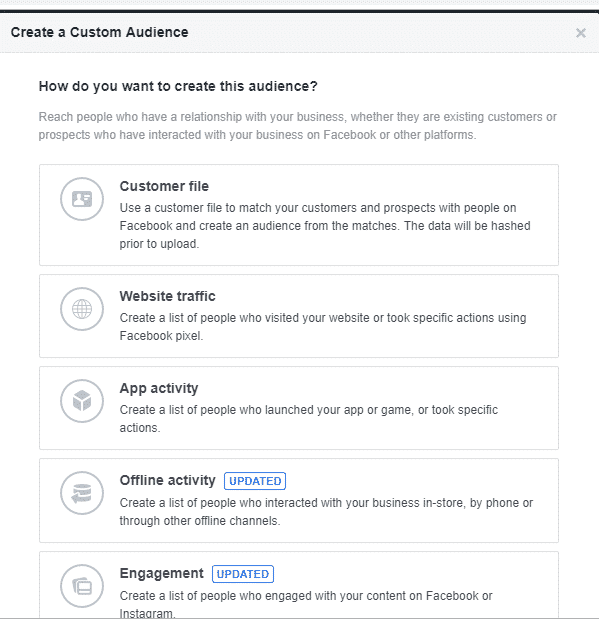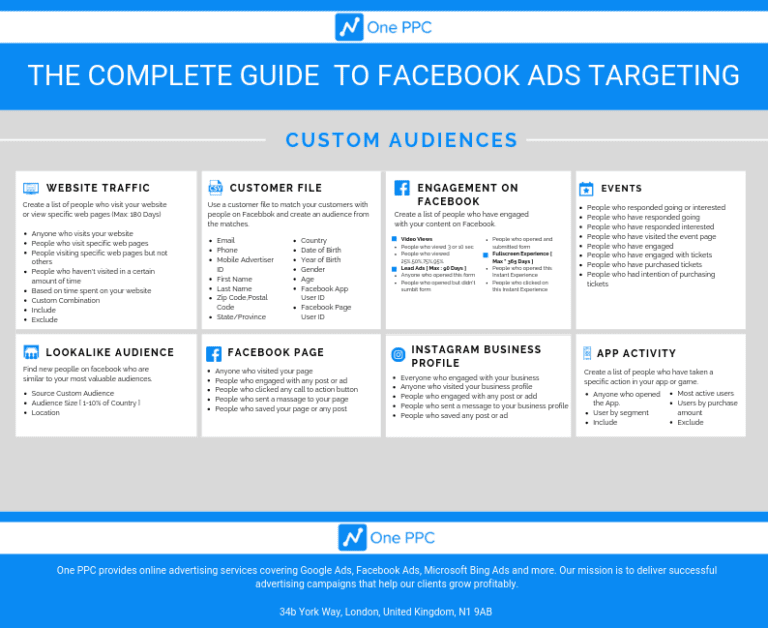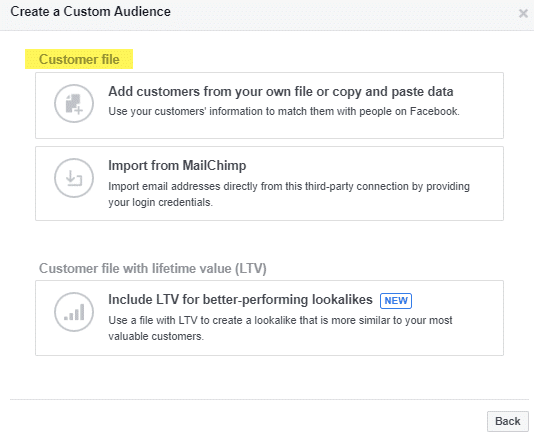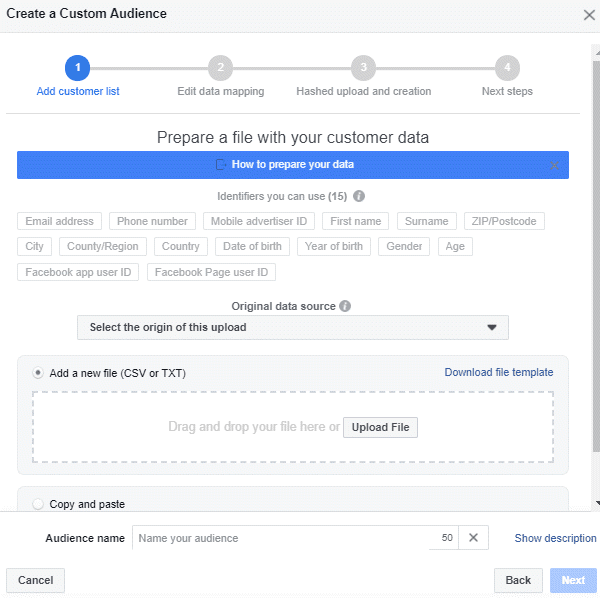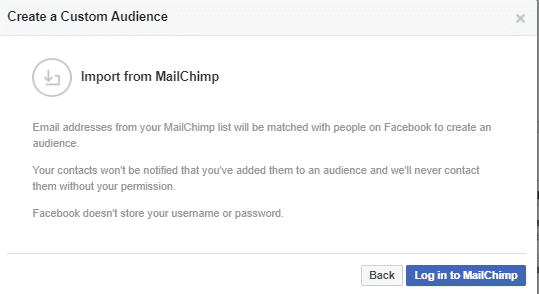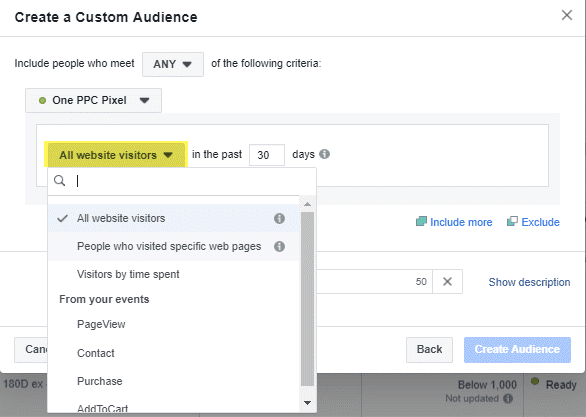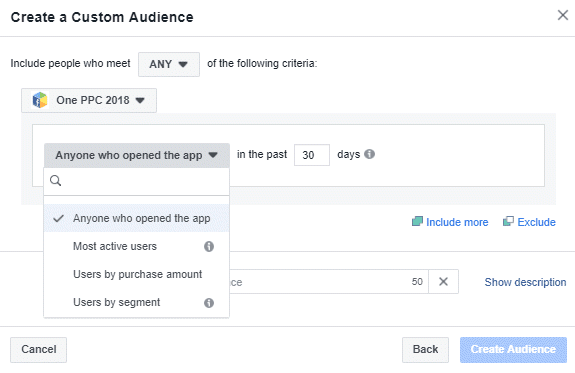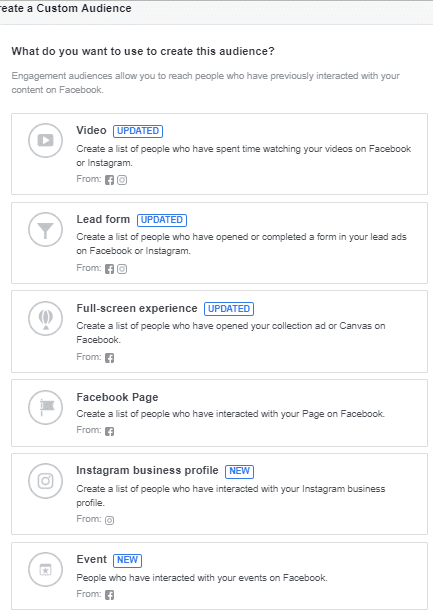Facebook remarketing is an inherently useful part of any marketing strategy. In this guide, we’ll explain the fundamentals of the entire process, so you can consider adopting this powerful technique in your own marketing efforts.
What is Facebook Remarketing / Custom Audiences?
Facebook remarketing is a term used to describe Facebook marketing efforts that are targeted towards users who are known to have previously interacted with your business in some way. For example, targeting Facebook ads towards users who have already visited your website, used your app, or are part of your existing customer database. Facebook has standard remarketing, and dynamic remarketing, We have written a seperate blog post for Facebook Dynamic Ads.
What is the purpose of Facebook remarketing?
- In many ways, the purpose of Facebook remarketing is to continually remind both potential and existing customers of your business. This helps to increase your company’s visibility to users and encourage them to make a purchase in future. Here’s an example of how this can work:
- A potential customer visits your website from a standard Google search during their lunch break at work.
- The potential customer browses a product page and identifies an item that they wish to purchase, but is then called back to work, so they cannot complete the purchase in the moment.
- Over the course of the rest of their working day, the potential customer simply forgets about the purchase they intended to make.
- At this point, the potential customer could be considered lost. You are now reliant on that customer both remembering that they want to buy, and that they want to buy specifically from your website – which is far from ideal. However, with Facebook remarketing…
- The same potential customer returns home from work and browses Facebook.
- They then see an advert for your business, which reminds them to return to your site and make their purchase.
The above is just one scenario in which your business can achieve a sale that may otherwise have been lost – as we will discuss in more detail below.
How does Facebook remarketing work?
- Facebook remarketing allows you to target three types of users: existing customer contact lists that you load to Facebook, users that visit your website, or users who download and use your app.
- When setting up a remarketing campaign, you can then target your ads to specific users within one of the groups above – for example, you could focus on users who have visited your business’ website in the last 30 days. Each type of user group is, in Facebook parlance, known as a Facebook Custom Audience.
- Users within your chosen Facebook Custom Audience will then see ads for your business when browsing Facebook as normal.
What are the benefits of Facebook remarketing?
Facebook remarketing essentially offers all the benefits of general Facebook marketing, only you can be confident you are marketing to users who are at least interested in your website – even if they did not initially complete a sale the first time they visited.
Furthermore, Facebook remarketing ads also tend to be successful, earning around three times the engagement as found on standard Facebook ads. Given that Facebook remarketing ad campaigns also tend to be more cost-effective than standard ads, the possible return on investment is significant: essentially, you can achieve higher engagement for a lower cost – a genuine win/win scenario.
Types of Custom Audiences
Reach people who have a relationship with your business, whether they are existing customers or prospects who have interacted with your business on Facebook or other platforms.
Customer File
Facebook has a range of ways to import your “warm” prospect and customer data.
Use a customer file to match your customers and prospects with people on Facebook and create an audience from the matches. The data will be hashed prior to upload.
Mail Chimp is the only email marketing system that has out of the box integration with Facebook. It is possible to login to Mail Chimp and sync your list via the Facebook API. Import email addresses directly from this third-party connection by providing your login credentials.
Email addresses from your MailChimp list will be matched with people on Facebook to create an audience.
Your contacts won’t be notified that you’ve added them to an audience and we’ll never contact them without your permission.
Facebook doesn’t store your username or password.
Offline Activity
Create a list of people who interacted with your business in-store, by phone or through other offline channels.
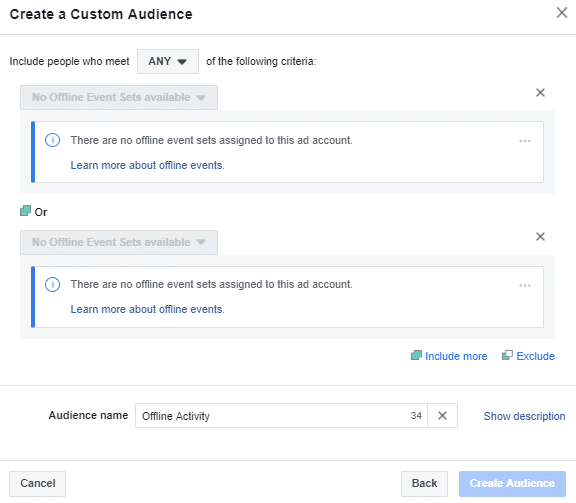
Accepting the T&C's
Usage terms are accepting and complying by the the terms of service set out by Facebook, as well as local jurisdiction such as GDPR.
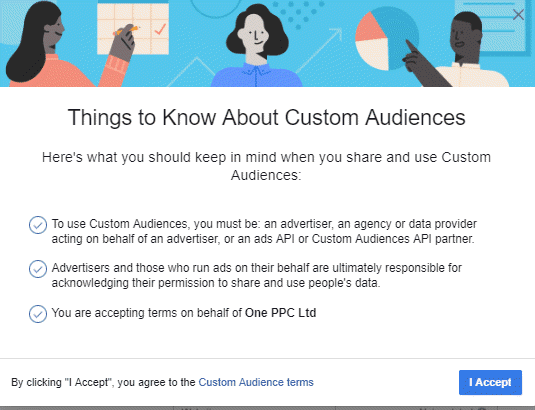
Facebook Remarketing Tips
Niche Custom Audiences
Create niche Custom Audiences. The more niche your custom audiences are, the more you will be able to target your ads effectively. Custom Audiences can be created for very narrow user types; you can even narrow your Custom Audiences down to those who have specifically added an item to a shopping cart and then failed to buy, using who have read a blog post on your business blog, or people who have visited a specific page.
Matching Custom Audiences
Match your ads to your chosen Customer Audiences. By using very narrow custom Audiences, you can target users in an effort to encourage conversions based on their previous behaviours; for example, if a user abandoned their cart after the delivery cost was added, you could then target an ad to them that offers free shipping.
Repeat Visitors
Seek to capitalise on repeat visitors. Remarketing should be a continual process, rather than a one-shot attempt to capture a specific type of user’s attention. When targeting your ads, you can specifically target users who have interacted with your brand frequently – even if they have not made a purchase. After all, if a user has repeatedly visited your website, then they are clearly highly interested in the products or services you have to offer, and may already be considering an eventual purchase. By targeting ads to these customers, you can help them cross the finish line – so to speak – with attractive offers and gentle reminders that your brand, in which they have already expressed a significant amount of interest, exists.
Customise bids
Customise your bids. For users who have previously directly expressed an interest in buying from your business – perhaps by adding an item to their cart, or viewing a pricing page – be prepared to increase your bids in order to ensure your ads are seen. In contrast, for users that have visited non-conversion pages of your site – such as your blog or company “About” page – you can bid lower, as it follows that these users are intrigued and may want to know more, but are not yet quite at the point where they are ready to buy.
Existing Customers
Don’t overlook existing customers. As we have discussed, many remarketing ads are designed to encourage a non-converting customer to eventually make a purchase. However, you can also use remarketing to target ads at existing customers in the hope of encouraging them to purchase again. For example, if you run a DIY store, you could create a Custom Audience for users who have previously visited the “drills” section of your website, and then target this Audience when you run a sale on drills or stock a new product.
In Conclusion
Facebook remarketing has an integral role to play in any business’ online marketing activities. If you decide to give it a try, and put the tips above into action, then you should soon begin to see your conversions and sales rise – much to the benefit of your business as a whole.
